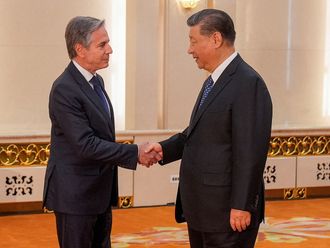Kabul The US and the Afghan governments are considering pushing through a long-delayed partnership agreement by relegating the contentious issues of night raids and control over detainees to separate negotiations, Afghan and US officials said.
The two governments have been working for about a year to nail down terms of a strategic partnership document that would govern US operations in Afghanistan after 2014, when the Afghan government is expected take charge of security country-wide.
The pact is seen as key to assuring the Afghan people that the US does not plan to abandon the country, even as its draws down troops and cuts aid funding. The hope is that a formal agreement will put an end to constant debate about how American troops will operate in Afghanistan and allay Afghan government concerns about an early exit by international troops.
But Afghan President Hamid Karzai has demanded control over detainees and an end to unpopular night raids by US troops as a condition of the pact. The US has said that it is committed to conducting joint operations, but that night raids are a key part of its strategy in Afghanistan. The Obama administration also has said that the Afghan judicial system is not yet capable of taking over responsibility for dangerous battlefield detainees.
The impasse has threatened to derail the accord, which both sides say they want to sign before a Nato summit in Chicago in May.
The long-term agreement is expected to provide for several thousand US troops to stay in Afghanistan after 2014 to train Afghan forces and help with counter-terrorism operations. The pact will outline the legal status of those forces in Afghanistan, their operating rules and where they will be based.
To break the stalemate, the two governments have agreed in principle that "the transfer of detention facilities and night operations to Afghan lead and control will be dealt with separately as short-term issues," said an Afghan official familiar with the talks.
A US official confirmed that the two sides have discussed splitting the negotiations along the same lines and that US Defence Secretary Leon Panetta is willing to do so.












